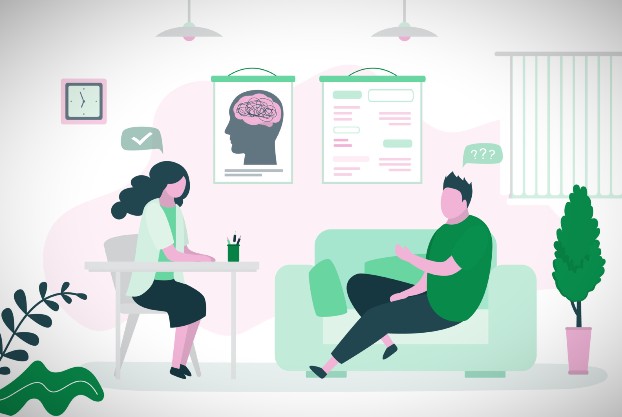High blood pressure, also known as hypertension, is a serious health condition that can lead to heart disease, stroke, and other complications if left untreated. While some risk factors for hypertension cannot be controlled, such as age, gender, and family history, diet, and lifestyle choices play a major role in determining blood pressure levels. In this article, we will examine how certain foods can negatively impact blood pressure and what dietary changes you can make to help keep your levels in a healthy range.
Foods High in Sodium
Consuming too much sodium is one of the biggest dietary culprits when it comes to high blood pressure. Sodium causes the body to retain water, putting excess strain on the heart and blood vessels. The recommended daily limit for sodium is 2,300 mg, but the average American adult consumes over 3,400 mg per day. The major sources of sodium in the typical Western diet include:
- Processed and packaged foods – Items like canned soups, frozen dinners, chips, and fast food are all commonly high in sodium. Always read nutrition labels closely.
- Condiments – Soy sauce, ketchup, mustard, salad dressings, and other condiments often contain hidden sources of sodium.
- Cured meats – Deli meats, sausages, bacon, and ham are cured with sodium during processing.
- Cheeses – Varieties like parmesan, feta, and bleu cheese are especially high in sodium. Limit portion sizes when eating them.
- Bread and baked goods – Most commercial breads, along with items like muffins, bagels, and crackers, have added salt. Opt for low-sodium varieties.
To reduce your sodium intake, limit your consumption of processed foods and restaurant meals, read labels carefully, and season meals with herbs and spices rather than table salt.
Foods with High Saturated Fat Content
Eating foods high in saturated fats like butter, red meat, full-fat dairy, and certain oils is also associated with higher blood pressure. Saturated fat causes LDL (“bad”) cholesterol levels to rise, which can lead to a buildup of plaque in the arteries. This buildup induces artery walls to stiffen and narrow, increasing resistance to blood flow and forcing the heart to pump harder to circulate blood.
Some of the top sources of saturated fat to reduce in your diet include:
- Fatty cuts of beef and pork – Choose leaner cuts and smaller portions.
- Full-fat dairy – Switch to low-fat or nonfat milk, yogurt, and cheese.
- Butter and lard – Use plant-based oils for cooking instead.
- Palm and coconut oil – Limit foods cooked in these tropical oils.
- Poultry skin and fried foods – Avoid eating crispy chicken skin and deep-fried menu options.
- Frozen pizza and desserts – Check labels and pick lower saturated fat alternatives.
Focus on healthier fats from plant sources like olive oil, avocados, nuts, and seeds instead.
Excessive Alcohol Intake
Drinking more than moderate levels of alcohol is linked to elevated blood pressure. Heavy alcohol consumption (more than 2 drinks daily for men and 1 drink daily for women) interferes with the sympathetic nervous system, leading to spikes in blood pressure. Over time, it can also damage the heart muscle, leading to cardiomyopathy, arrhythmias, and stroke.
Those who drink moderately don’t appear to have the same risk. However, if you have hypertension, it is smart to closely monitor your alcohol intake and avoid heavy episodic or “binge” drinking. Speak to your doctor about safe limits based on your medical history and degree of blood pressure control.
High-sugar foods and Beverages
There is some evidence that a diet high in sugar can negatively impact blood pressure. Sugary foods like candy, baked goods, and desserts are high in calories but low in nutrients. Packing on excess weight strains the cardiovascular system and directly contributes to hypertension.
Even more concerning may be the strong link researchers have found between sugary beverages like soda and pre-hypertension. It’s best to minimize intake of added sugars and limit sugary drinks. Focus your diet on whole, minimally processed carbohydrates such as fruits, vegetables, and whole grains instead.
Caffeinated Beverages
Drinking more than 2-3 cups of coffee daily is associated with elevated blood pressure, especially in people who are not habitual coffee drinkers. There seems to be less of an effect with regular intake among those who drink coffee routinely. The amount of caffeine found in 2-3 cups (200-300 mg) is equivalent to about 4 cups of brewed tea, 2 energy shot drinks, or 2-3 cans of soda.
Moderating your total caffeine intake from all beverages to this range is a smart approach if you have hypertension. Avoid excess intake by measuring servings carefully and being aware of hidden sources of caffeine in foods and beverages.
In Conclusion
The foods you regularly eat and drink have a significant influence on your blood pressure readings. By being mindful of your sodium, saturated fat, sugar, and alcohol intake, you can start making positive changes to control hypertension. Focus your diet around whole, fiber-rich plant foods like vegetables, fruits, beans, lentils, nuts, seeds, and whole grains. Be diligent about reading nutrition labels to limit excess sodium, saturated fat, and added sugars. Moderation is key for ingredients like cooking oils, dairy, meat, and caffeine. Adopting healthy eating habits can go a long way toward maintaining normal blood pressure.
Frequently Asked Questions
Which food group typically contains the most sodium?
Processed and packaged foods.
What are some hidden sources of saturated fat to watch out for?
Butter, fatty cuts of meat, full-fat dairy, palm oil, coconut oil, and fried foods.
What is considered heavy alcohol intake?
More than 2 drinks daily for men and 1 drink daily for women.
What nutrients should you focus on getting more of to improve blood pressure?
Fiber, potassium, magnesium, and calcium from whole plant foods.








